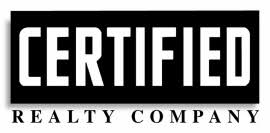
Whether you’re a homebuyer or homeseller, the presence of more than one buyer competing for the same property changes everything. In other words, adding multiple buyers to the mix means a change in behavior between all parties involved. As a result of this decided shift in control, buyers typically become more competitive. Why? Because fear of loss can be a powerful motivator.
And while it’s possible for three, four, or even more buyers to compete for the same house, the principle is essentially the same, regardless of how many multiple buyers write an offer. Adding more buyers to the mix, however, does have a tendency to ‘quicken’ the pace.
Collaborative vs. Competitive
We all want a good deal. Depending on the personalities involved, shifting from a ‘one-offer scenario’ to a ‘multiple-offer scenario’ can have the effect of shifting homebuying negotiations from what can sometimes be a friendly and collaborative effort, to more of an aggressive and competitive one. This can add stress to what is already a stressful situation among homebuyers.
For Buyers & Sellers
What can buyers do to lower the volume, lessen their own anxiety and reduce the frenzy without getting caught up in the process, all while making sure they don’t miss out on the house of their dreams? Plus, what can sellers do to maximize their leverage in getting the best possible offer? And for both buyers and sellers, are there specific tips you can use to ensure you’re ‘in it to win it’ for your next home purchase or sale?
Find out more, in this Oregon real estate podcast by clicking here or on the audio ‘play’ button above!

Why the Dynamic Changes
Until that first offer comes in, homesellers can be optimistic, but have no absolute foolproof guarantee that an acceptable offer will come in by a certain date. As a result, whether their home is on the market for a day, a week, or a month, buyer response depends on pricing and the state of the local real estate market, such as if it’s a buyer’s or seller’s market, along with where interest rates are hovering, plus a home’s floor plan and the like.

Trade ‘Hats’
There are ‘homebuyer’s hats’ and ‘homeseller’s hats.’ That’s a real estate idiom for understanding how those on the other side in a negotiation perceive a situation or offer. Whether buying or selling a home, it’s helpful to try on the other party’s ‘hat’ and see the transaction from their perspective. For example, if you’re a buyer and really want a particular house, if roles were reversed and you became the seller, would you seriously consider an offer lower than what you could reasonably expect to receive?
Most buyers and sellers are looking out for their own best interests, so unless there is a good reason for the other party to break from that tradition, understand that for most people, the amount offered—often along with some other potentially important factors—plays a big part in any decision making. Unless a friend or relative is involved, one simply can’t reasonably expect people to go against what’s in their own interest.

Balance of Power
When multiple buyers express interest in a property by each writing an offer, the balance of power has shifted substantially in favor of the seller, who’s then in a position to either say ‘No’ to all interested parties who fall short, or simply pit one buyer against another to better the offers. When you think about it, this is not so much different than what we see in an auction situation. A key difference is that with real estate, ‘open bidding’ is the exception and not the rule. As a result, real estate buyers are largely ‘bidding blindly,’ without knowing what their competition is doing. This situation is more common when housing inventory is low, and/or when a seller is highly motivated and has priced their property below what the market might otherwise expect.

‘Bidding Wars’
True to our earlier-mentioned military-eque term, multiple buyers interested in the same property can sometimes engender what’s called a ‘bidding war.’ This is when two or more sets of buyers compete for the same property, with the effect of bidding up the price. This is very good for sellers and often quite stressful for buyers. For helpful tactical insights in strategically selling your home, check out our prior feature article and podcast, titled ‘The Art of War for Homesellers’ here.
A Case Study
We’ll call our homebuyers ‘Jack & Jill’ in this true life, multiple-buyer story that actually happened. Jack & Jill were seeking a larger home and yard for their growing family with three pre-teen kids and needed to stay within their current school district. Complicating the matter was a good, but nevertheless limited budget. In addition, the available inventory of homes fitting their needs was very low. One day I received a phone call from Jack saying that he and Jill were ready to try for the house they really wanted:
‘We think we’ve decided on the perfect house. We realize it’s been listed for a while, so maybe we can bring the seller down on the price.’
The home Jack & Jill were enthusiastic about indeed had been listed for more than three months. In that current ‘seller’s market,’ the market time was longer than average and while the home was quite nice, the price was near the very top of the market. As a result of all this, it’s no wonder Jack & Jill thought they might be able to negotiate the seller down on price. However, further research indicated the seller had made a very recent price reduction. As we’ll soon see, this would have the effect of ‘stirring up’ the market for that property.

‘You Snooze, You Lose’
From the beginning of our home hunt, I’d advised Jack & Jill about possible transaction dynamics between buyers and sellers. As part of this, early in the process I’d pointed out various offer scenarios to Jack & Jill:
‘For now, if we find something you really like, you needn’t rush. But we’re in what’s known as a ‘fast market.’ So if a second buyer appears, any offer leverage you may hold is likely to decrease significantly and quick. That’s because when homesellers have choices, they often use them and in a multiple buyer scenario, one choice homesellers have is to ‘play’ one buyer off against another.’
Enter the Second Buyer
Right about that time, I received word from the seller’s Realtor:
‘Better do something if your folks want the property. I understand there’s an offer coming in at any time now from another Realtor. Good luck.’
I communicated this information to Jack & Jill, who still hoped they could bring the seller down on price. Their response?
‘We want the house, but don’t want to overpay for it.’
Now Jack & Jill had a dilemma. It was likely they needed to ‘come in strong’ with a good offer early on, in order to decrease the chances of losing out and to win the house they wanted so much. That’s because any offer they made would now need to better the one from another family, who might be dealing with a similar situation, while dealing with our same housing market. This continued my discussion with Jack & Jill about any forthcoming offer they might make. In our ensuing conversation—and as a protection of sorts for Jack & Jill—I noted that even if they ‘overpaid,’ the property would still need to appraise for the amount of their accepted offer. If it didn’t, they could use their appraisal contingency to back out. But first, they would need to write an offer that the sellers would accept. In my followup conversation with Jack, I boiled it down to this:
‘Jack, of course, the decision is all yours and Jill’s. I’m happy to handle things however you’d like. As things currently stand, you and Jill have several options. One is to try to get a bargain and run the risk of being beat out by the other buyer. Another option is to make the best offer you can, where you stand a better chance of having your offer accepted. Then even if you think you ‘overpaid,’ you could wait to see what the appraisal says and decide from there.’
I then detailed to Jack that based on how their offer was written, if the home didn’t appraise correctly, they would then have the option to either (1). terminate the transaction, (2). try to re-negotiate price, or (3). if the appraisal came in low and they still wanted the house, even if the seller wasn’t flexible, they could then decide to move forward (or not) with the purchase once they were then armed with more information, such as if the appraisal was only a little low and otherwise one they could accept.
Alternatives Are Empowering
If Jack & Jill had been purchasing in a more buyer-friendly ‘buyer’s market’ and not a ‘seller’s market’ and/or if their school district options and home checklists were more flexible, they likely would have felt more empowered. In that scenario, Jack & Jill could have had more negotiating room. But they didn’t. And the home they wanted was indeed beautiful. In fact, the property seemed perfect for them. Now they needed to establish what would constitute a fair price.
The Conversation
‘What do you think we should offer?’ Jack & Jill both asked.
I responded with some insights I’ve learned as a full-time Realtor since 1988:
‘With the addition of a second buyer, especially in a seller’s market, the end result is virtually unknowable. That is, no one can be 100% certain of what it will take in order to get this house. Instead, we’re dealing within the realm of likelihoods. These other buyers may be from out of state, or possibly have sold another home for a significant amount and ‘scaling down.’ If so, what might be seen by some as a high price may not be such a financial ‘reach’ for them.
I continued:
‘The issue may also become not only price, but perhaps meeting some of the seller’s other possible ‘hot button’ needs. For example, if that other buyer’s offer on the house you want is all cash, without a loan or appraisal involved, we’re then not only dealing with price, but the seller’s reliance on the likelihood of the sale closing once their property is off the market. So because we don’t know any of those factors, what we can do is work within degrees of likelihood. So the ‘cleaner’ and more forgiving your offer—and the higher you are on the price, especially if you offer above the list price—the greater your chances of getting the house.’
What Happened Next
Jack & Jill discussed their options and decided they were ‘in it to win it.’ As a result, we wrote a clean, more-than-full-price offer. It was accepted! I later learned the other offer was indeed strong, but Jack & Jill’s offer had been accepted by the seller mainly due to the added amount they’d offered over the home’s list price. This told me that we’d been dealing with an especially ‘price-sensitive’ seller, whose other concerns were dwarfed by price.

A Happy Ending
Jack & Jill are now enjoying life in their new home and are raising their three kids in that beautiful and much larger house with a spacious yard. They’re very happy with the result and while the process was at times stressful, they’re also glad they moved forward on their home purchase with both clarity and focus.
Helpful Tips
So how can you—as a homebuyer or homeseller—learn from this case study of an actual transaction where buyers competed for a home they desperately want? Here are some helpful tips to get you started.

Buyer Tip #1. Get Pre-Approved & Run the Numbers
Jack & Jill made sure to get pre-approved for their home loan. Pre-qualified and pre-approved are two terms you may have heard before and either is better than nothing. But if you want to stand the best chance of sellers approving your offer in a competitive situation, go through the extra steps of getting pre-approved. That means your mortgage lender may require a credit check and verification of things like income and assets, but when you’re in the middle of a home purchase negotiation and time may be of the essence, you’ll be glad you did that work ahead of time. During this time, also have your agent confirm the value of the property you’re interested in by comparing similar, nearby recently sold homes.
Seller Tip #1 — Know Your Market
It’s essential for homesellers to understand the real estate market environment they’re selling into and how the home they’re selling relates to that market. This typically means having your Realtor provide a thorough review and comparison of your property with other similar and recently sold properties. The Realtor for the seller that Jack & Jill purchased from knew the market and advised the seller to price accordingly. It paid off.
And while there’s usually a limit to how high you can push the price for any property, sufficiently motivated buyers can surprise a homeseller. That’s because if a buyer has definite needs, is highly qualified and/or buying with all cash, homesellers then needn’t worry about some of the usual concerns, such as an appraisal, because with well qualified buyers having a large down payment, appraisals are either much less of an issue, or in the case of cash, not even necessary.
 Buyer Tip #2 — Count the Cost
Buyer Tip #2 — Count the Cost
If the seller’s price is higher than you’d hoped for, consider calculating the cost difference between the price you planned on paying vs. what it will take to successfully have the best house bid. Over the life of a 15 or 30 year home loan—and depending on factors like interest rate—the difference of paying an extra thousand dollars to successfully outbid any other buyer to get the house that fits your needs may amount to as few as several dollars a day.

GOOOOOAL!
Since purchasing one’s ‘dream home’ is a primary goal for many, some buyers take the ‘big picture’ approach and wisely make concessions to a seller as necessary, in order to first secure the home. Then, after perhaps having paid a bit more than expected, they creatively make up the savings elsewhere, making up for what can amount to the above-noted ‘several dollars a day’ difference.
How? Some new homeowners grocery shop more efficiently, pay property taxes in advance (thereby receiving a deduction), increase their insurance deductibles to lower that monthly cost, or forgo their daily, spendy latte on the drive to work and instead drink home-brewed coffee. When the goal is important, there’s often a way to get it done.

Seller Tip #2—Don’t Be In A Hurry
While it’s not considered ‘good form’ to make buyers wait excessively for a response, if there is already one good buyer in the mix and you have a few days to consider that offer currently ‘on the table,’ another buyer may soon appear with the best offer of all. This is precisely what Jack & Jill’s seller experienced. As a result, a case can be made for responding ahead of any offer deadlines, but not in a hurried fashion. Look to your real estate agent for guidance here.

Buyer Tip #3: Reduce Contingencies
There are important contingencies most homebuyers include in an offer. These contingencies generally include a home inspection, along with both appraisal and financing contingencies. However, some contingencies will damage your offer.
That’s because if you’re making an offer on a home in a fast-paced, competitive market and include a contingency that expects to take the seller’s property off the market while you first try to get an offer your own home, that kind of contingency is likely to jettison your chances. In our above case-study, Jack & Jill made their offer with common sense contingencies that didn’t scare the seller. So, while in hindsight we learned that price had been the seller’s most likely ‘deal breaker,’ by writing an offer clear of unworkable contingencies, this helped keep Jack & Jill’s offer competitive.
To be clear, an offer contingency tied to the buyer first needing to get an offer on the buyer’s home is decidedly different than the more common contingency of already having a sale on the buyer’s home and writing an offer simply subject to the final closing on that existing transaction. Also consider other potential ‘hot button’ seller items, like closing dates. If the seller wants a fast closing, consider a sooner closing date if possible and have your Realtor write that in your offer.

Seller Tip #3 —Do Your Homework
Before taking your property off the market for a buyer who isn’t able to purchase, your Realtor is in a position to confirm buyer qualifications by confirming the buyer’s lendability status and/or availability of funds, such as reviewing the buyer’s bank statement with names intact, but account numbers redacted. Most well-written offers include a pre-approval letter for the stated purchase price. Expert Realtors representing a seller will routinely check with a buyer’s lender prior to suggesting their homeseller client accept any offer.

Buyer Tip #4: Write a Strong Offer
Don’t insult with a lowball offer and expect a seller entertaining multiple offers to somehow treat you favorably. If you know another offer is being made on a house you want, realize that single fact alone is evidence the market is favorable to the property. As a result, that house you want is therefore probably not overpriced and may even be under-priced. Still not convinced? Then go back to Buyer Tip #1 and have your Realtor review comparable home sales for the neighborhood.

Cash Talks
If you’re able to write a cash offer and your offered price is within the seller’s acceptable range, this can present a seller with a serious reason to want to work with you, to the exclusion of other buyers. That’s because a lender’s appraisal is then not required, thus providing more assurance of one less potential problem. Closing time frames also tend to be shorter in cash transactions. Yet another added bonus with cash is that because there’s no home loan, no loan underwriter can create conditions necessary to fund the transaction.

The Buyer’s ‘Kick-Yourself’ Question
If your Realtor has provided you with solid comparable home sale information to help determine what the house you like is worth, that may be enough to calm your fears. But if you ending up making an offer that isn’t competitive and lose out to another competing buyer, once the dust has settled you still may ‘kick yourself’ for not sufficiently raising the stakes. So after reviewing those comparable home sales but before you write your offer, consider at what price would you regret, or ‘kick yourself,’ for not getting the house you want? That could help to clarify how much the home is truly worth to you.

Buyer Tip #5: Consider ‘Sweetening’ Your Offer
If you’ve already written what you thought was your best offer, then wake up in the middle of the night fearful of losing out, consider ‘sweetening’ your offer. This can be done one of several ways and there is no ‘one size fits all’ answer, since much depends on the seller, so discuss such options with your Realtor. One way is to simply raise your offered price by re-writing it, or with an addendum. Another way is to make your earnest money deposit non-refundable. This has the effect of convincing sellers that even if you back out, they’ll receive your earnest money deposit, thereby compensating them for having their ‘hot’ home off the market, while they miss out on other possible buyer opportunities.

Escalation Clause
Another option is to use what’s known as an ‘escalation clause,’ whereby your offer automatically raises above the otherwise best competing offer by a pre-determined amount, usually with a maximum written in. For example, your escalation clause may state that you’re willing to beat any other qualified offer by $3,500, up to the maximum home purchase price of $650,000. In this example, if your initial offer was initially beaten by another buyer, your offer automatically ‘escalates’ $3,500 above theirs, as long as it does not exceed $650,000. Other factors are typically involved, such as deducting from the competing offer any non-price specific factors like seller paid closing costs, so a ‘true’ offered price is used, not an inflated one.
Seller Tip #4—Look Beyond Price
While price can certainly be a key factor, if you’re considering multiple offers on your home, understand that other issues may be very important, too. Let’s look at just a few:
1. Likelihood of Closing. A buyer with a 50% down payment is considered a better risk to take your home off the market for than a buyer barely able to scrape together a down payment. That’s because lenders tend to be more forgiving with stronger buyers. That means if the appraisal comes in a bit low, unlike with a weaker buyer, it’s not necessarily a ‘death knell’ for the transaction with a stronger buyer. And if the stronger buyer’s home inspection reveals more trouble than was expected, depending on negotiations, there’s a chance that the stronger buyer may be in a position to either forgive or take on some of that added repair cost. Weaker buyers may have to rely on sometimes less-forgiving lender repair requirements.
2. Buyer Temperment. The ‘white glove’ treatment is an idiom to signify those who walk around inside a house wearing white gloves in order to detect dust. If a buyer or their offer sends signals that they’ll be persnickety on inspections, realize that other buyers may be more forgiving, so it could be worth working with other buyers to avoid such headaches, even at a slightly lower price.
3. The ABC’s of Closing Costs. Some buyers need seller-paid closing costs in order to purchase a property. That’s because they may have (A). the required income, (B). down payment and (C). good credit, but still need help coming up with their (D). closing costs. As a result, it’s not uncommon for sellers to help buyers in this manner. But factor seller-paid closing costs into any offer, to better compare which buyer is right for you.
4. Possession Dates. Do you need an extra week or ten days to vacate the home? If delayed possession is a major consideration, consider working with the buyer able to be flexible. Otherwise, storage and moving costs may become more of a factor than you first realize.
5. Fixtures & Appliance Negotiation
Some buyers have less need to request inclusion of certain items with their home purchase. The purchase of washers, dryers and even unique fixtures (like an antique chandelier initially excluded from the home sale) can all be negotiated, sometimes outside of the real estate transaction. Depending on the costs involved, homesellers may factor in such personal, or otherwise excluded home items when buyers ask about including them with the home purchase.

In the Market?
Whether buyer or seller, when you work with an experienced and professional Realtor, your next home purchase or sale is sure to be more successful.

Do You Have Real Estate Questions?
Contact Certified Realty for a free consultation using the convenient form below!